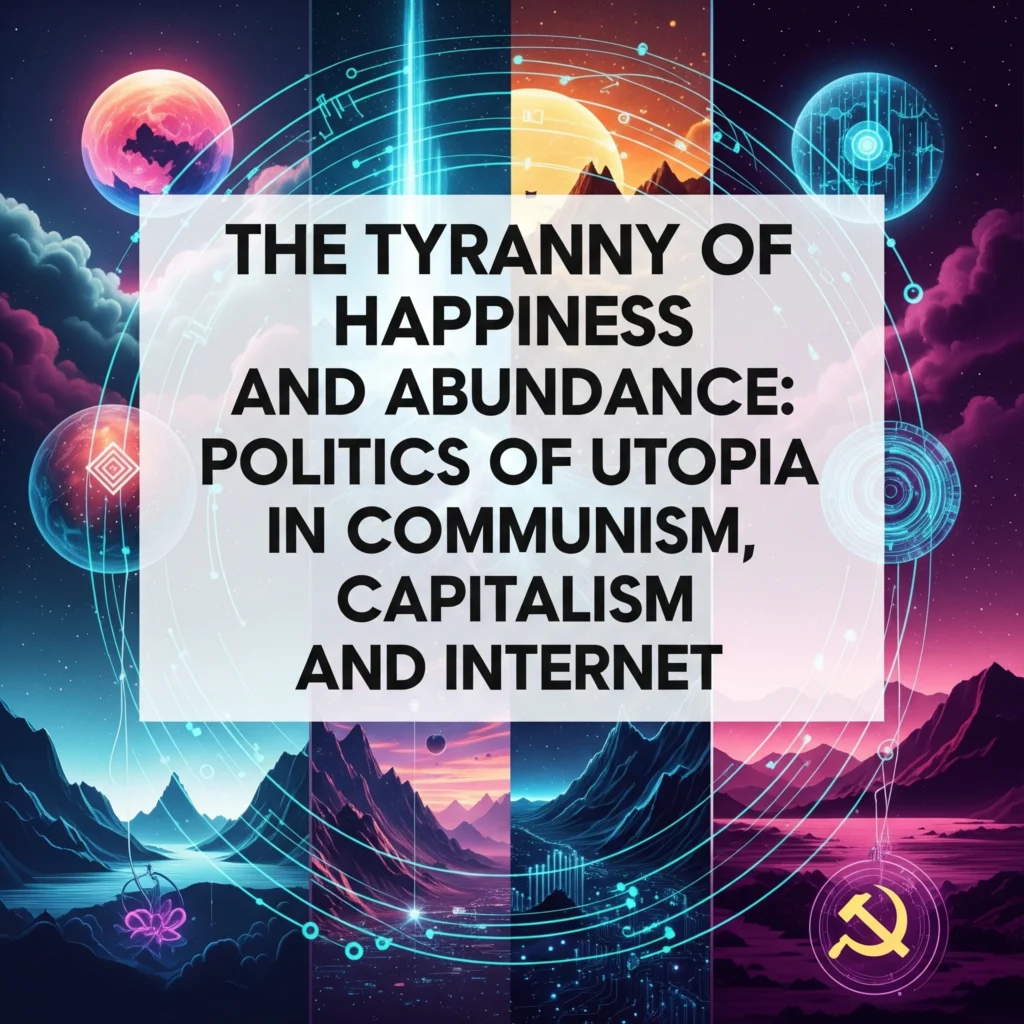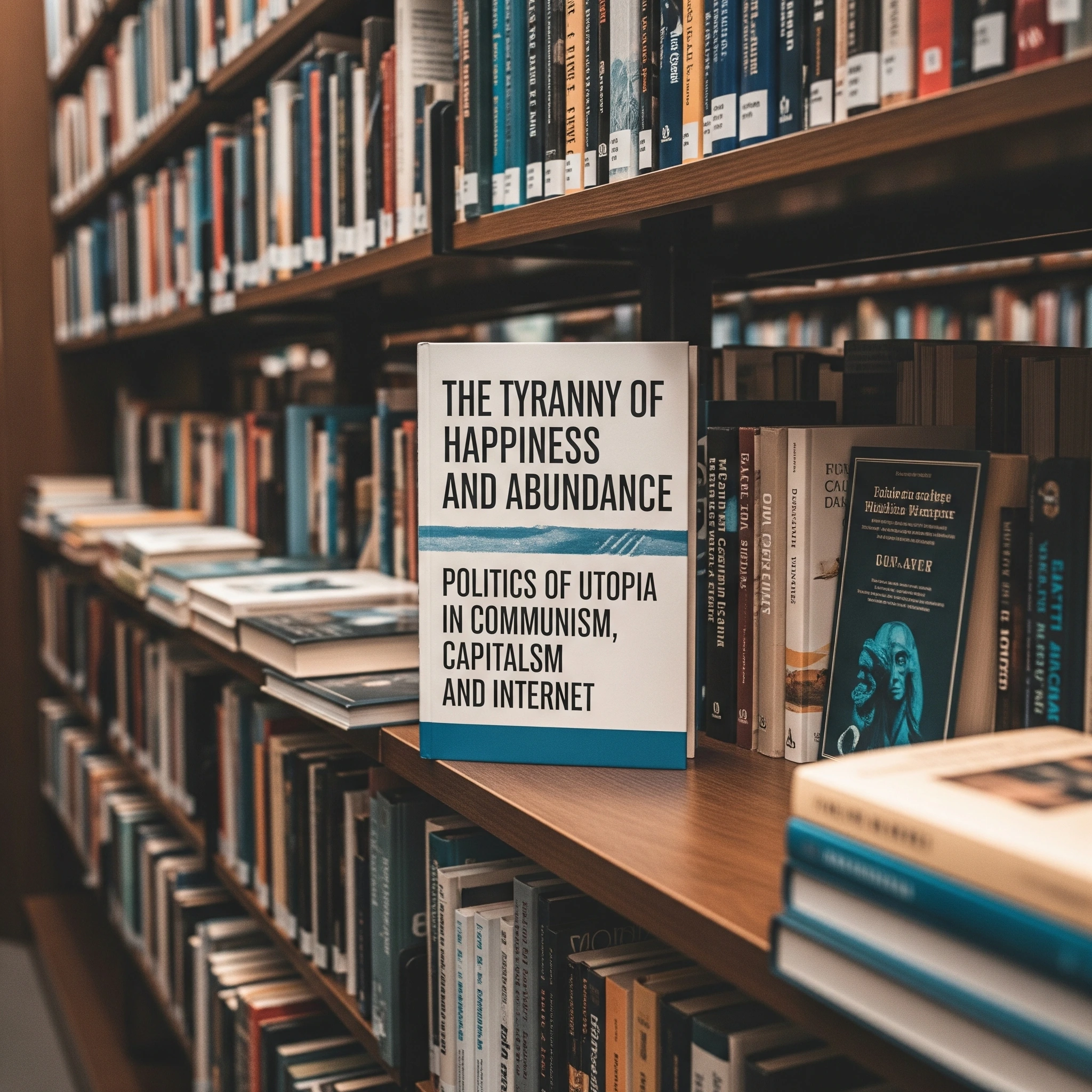The Tyranny of Happiness: The Politics of Deception Across Ideologies
The Happiness of Communism
In our region, communism instilled a deeply damaging emotional and cognitive dissonance through its insidious logic: ‘good workers equal good citizens, therefore good people, golden people, leading to good, happy and abundant lives.’ The gold age.
This warped equation narrowed our focus to the active, productive phase of life, creating a relentless cycle: childhood, education, marriage, career, homebuilding, procreation, and its xerox-like perpetuation through children. But the story abruptly ended. Upon reaching retirement, many discovered that while the road ended, life did not. In the face of this void, we asked ourselves: What now?
The Abundance of Capitalism
A similar misfortune, albeit with slightly different words – ‘good workers equal successful citizens, therefore great people, golden millionairs, leading to great and abundant lives’ – played out in capitalist regions. The result? The gold age. In the face of this void, they asked themselves: Is this it?
Crickets.
The Success of Art and Artists
At the level of independent creators, films and art, too, often meet a similar fate: creation, then an abrupt end, followed by struggle and the randomness of chance. Yet art in general possesses a peculiar power: even when relegated to invisibility, it endures, awaiting rediscovery. If not destroyed, it continues to exist and to live inside itself. In a way, art is proof of the immortality of the human soul and a guardian of mysteries waiting to be unlocked; however, the sad truth is that a good chunk of art stays at the doors.
This dissonance, this pre-existing mental framework, hindered our understanding – in ways we are still uncovering – when the politics of the internet suddenly took hold in the early 90s. It blinded us to the web’s invisible nature and its virtual potential, challenges and threats. We were not only unprepared for a change of such nature, magnitude, and speed, but also hampered by a deeply ingrained confusion and lack of technical expertise.
The Algorithmic Fame and Fortune
Suddenly, the promise of freedom expanded exponentially across the globe, making capitalism and communism synonymous in relation to the boundless informational space now before us.
For the propaganda of the internet came with the same rhetoric as both communism and capitalism, but at an universal scale: initially, ‘good content equals happy algorithms, leading to good and abundant lives,’ then, in its semantic version, ‘good content and good SEO equals very happy algorithms, leading to great and abundant lives.’
And just as those earlier promises proved hollow, so too will the promise of digital utopia remain unfulfilled unless we critically examine the structures and assumptions that underpin this new informational landscape.
This time, there is no escape to some imagined elsewhere; for over thirty years, we have been trapped beneath the tyranny of algorithmic happiness, abundance, success and fame.

The State of InVisibility
Abundance has become more than a propaganda buzzword; it’s now quantifiable information. On the web, these numbers are staggering, and a brief examination is essential – not just to understand our odds and pathways forward, but primarily to see a truth obscured by marketing rhetoric.
Until the COVID-19 pandemic, when artificial intelligence gained widespread public awareness, search engines – and Google in particular – governed the web. As John Battelle, author, journalist, and former founding editor of Wired, observed in his 2006 book The Search:
Google had more than its finger on the pulse of our culture; it was directly jacked into the culture’s nervous system. […] My God, I thought, Google knows what our culture wants.
This underscores the immense power that search engines (and now AI) wield in shaping our understanding of culture and communication. It is not just about providing access to information; it is about knowing what we want before we even know it ourselves. Algorithms are at the core of their operations, and information – specifically, its definition and structure (metadata) – is the fuel. And on that fuel we have the greatest influence; we, the creators, are the suppliers.
As Peter Gloor, a research scientist at the Center for Collective Intelligence at MIT, highlighted in his 1997 book, Elements of Hypermedia Design: Techniques for Navigation & Visualization in Cyberspace:
To be searchable, information has to be stored in machine-readable format.
Despite this knowledge, and despite the rise of Search Engine Optimization (SEO) – a digital marketing discipline whose purpose is to match user intentions with online content through strategies including metadata, backlinks, and other technical optimizations, and aggressive technology advertising – a 2023 web traffic study using Ahrefs‘ Content Explorer Tool (incorporating 14 billion pages) reveals a mindbending truth: 96.55% of all pages in their index get zero traffic from Google, and 1.94% get between one and ten monthly visits. Moreover, Google doesn’t even find all web pages, meaning the web’s true magnitude remains unknown. On the other end of the spectrum, the same year, Neil Patel, a digital marketing authority, showed that over 40 billion pieces of content were being published on the internet every day.
What are we doing wrong? Or what are we not doing? And why? The magnitude of invisibility is uncomprehensible, pointing to a fundamental flaw in our current approach to communication and digital expression – not only in the cultural world, but also in the business and social spheres: we invest in building beautiful houses in a digital desert and then wonder why no one visits. What is that we don’t see? What is that we don’t know? What do we need to learn?
The void between visibility and invisibility remains vast, layered, and unexplored. So do the opportunities, challenges, and threats. We must sculpt the void.
Creators’ Revolution
Now, with art so vital to the equation of online visibility and discovery, with artists holding unprecedented potential to directly influence algorithms in the new creative economy on the background of metadata revolution and evolution – the ‘fuel’ of search and recommendation systems, but also the ‘translator’ in human-machine communication and “the interface of reality“, it is the ideal time to take control of the digital destiny of art.
For what is art on the internet if not the digital expression of the spirit of artists, filmmakers, and creators?

Leave a Reply